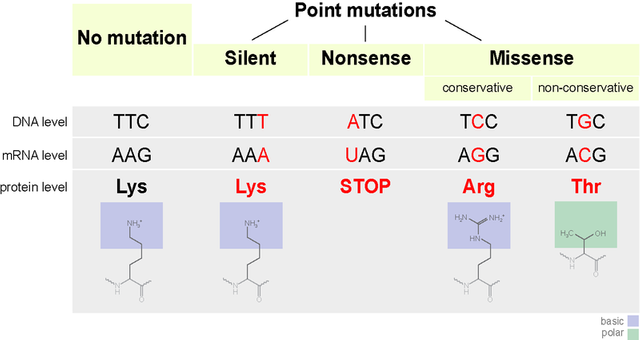Is There Risks Associated With Fathering A Child At Old Age?
Women folks have always been at the receiving end from the society over the issue of late marriage as it relates to childbearing. In this part of the world, it is a societal norm to always remind ladies who are in their mid to late twenties that clock is ticking against them so that the expedite action in trying to bring a suitor home. The reasons for this societal norm stem from the fact that women's fertility decreases with age, and the risk of giving birth to health-impaired kids is thought to be greater in older mothers.

Source: pxhere.com CC0 public domain
In all of this, no one pays attention to men folks because society believes men can be fertile into old age and so what the heck? They do not, ordinarily, have a compelling reason to go into early marriage or plan raising kids within a certain age range unless they feel like it. In fact, among the Igbo people of Nigeria it is an anathema for a young man with no established economic fortune to father a child. Young men are expected to be well established before thinking of settling down. Today, in the face of battered economy and men's unwillingness to go into marriage financially unestablished, it is not uncommon to see men still single at early to mid 40s.
Taking into account the foregoing prelim, this article does not seek to controvert the societal disposition towards women; of course a woman's chances of getting pregnant progressively becomes slimmer with advancing age. While this is true, however, this article seeks to correct the notion that men are off the hook with no compelling reason to father a child within a certain age bracket. Recent research studies have linked the rising age of fatherhood to increasing rates of psychiatric disorders such as schizophrenia, dyslexia, autism and reduced intelligence having established that children inherit more genetic mutations from older fathers than from older mothers.
The evidence
In a study involving a team of scientists led by Kari Stefansson of deCODE Genetics in Iceland and published in Nature in 2012, the researchers sequenced the entire genomes of 78 Icelandic parents and their children in order to determine the rates of mutation occurring in them at high coverage. The result, according to the scientists, showed that the number of mutations that offspring inherit from their father is directly proportional to the age of the father.

Different types of mutations
Source: wikimedia commons. Authored by Jonsta247 under CC BY-SA 4.0 license
In other words, this basically means the older the father, the more mutationally altered genes he passes on to his children at the time of conception. They established that once a man hits puberty, for each year he delays fathering a child, he risks transferring two extra mutations to his child, and stated that, on average, the number of mutations a 20-year-old father would pass on to his child is about 25 whereas a child would inherit about 65 mutations from a 40-year-old dad. This shows marked contrast to the number of mutations a child inherits from his mother, which is put at 15 irrespective of her age.
Again, in a more recent study which was also published in Nature last year, and involved Kari Stefansson, the team leader of 2012 study, the researchers carried out a thorough analysis on the DNA of over 1500 Icelanders and their parents in a study that is intended to understand how the sex and age of transmitting parents contributes to de novo mutations. The study found that new mutations occurring in mothers increased by a fraction of only 0.37 per year, which is said to be a quarter of the rate found in men. In the 2011 online publication of the Malaysian Mental Health Survey, it was reported that both children of older parents and those whose dad were at least 11 years older than their mum, were all at increased risk of certain mental health disorders among which anxiety, phobias, obsessive-compulsive disorder and depression were all mentioned. Breaking down the observations of the publication in terms of percentage, it was shown that:
Offspring whose fathers were 19 or younger when the child was born had just a 9 percent prevalence of mental health disorders. Regardless of paternal age, however, if the father was 11 years or older than the mother, that rate jumped to 24 percent. The greatest risk of mental health disorders—42 percent—was seen in the children of fathers aged 50 and older, with wives at least 11 years younger than their husbands.||Source
Looking at results of studies discussed so far, there is no denying the fact that indeed there is a clear evidence linking the older fathers to increased risk of mental health disorders in children. Even this report of a meta-analysis by Christina Hultman of the Karolinska Institute in Stockholm and this one by Jacobine Buizer-Voskamp of the University Medical Centre, Utrecht, are all suggestive of so.

Source: Pixabay CC0 licensed image
Why brain
In the face of the current scientific reality that the mental health outcomes in the children who are fathered by older men are a direct consequence of aging on gene expression, one may ask;
"why such gene alterations choose to be expressed in the brain amongst all the body organs?" Question rephrased by me based on the content sourced here
To provide a suitable answer to this, scientists emphasized that new parental mutations are a strong factor based on the fact that more genes are active in the brain far more than in any other body organ. In other words, brain depends on more genes to meet its developmental and regulatory needs. This explains the reason genetic mutations are more likely to manifest in the brain as problems than in any other organ.
Why men contribute more to a child's metal disorder
During the process of fertilization, children acquire new mutations from from the sperm cells of their father and mother's egg cells. Now, men produce new sperm cells every 16 days throughout life using a process that is said to be imperfect. Each phase of new sperm cells production means division of a parent sperm cell into two with each of the new resulting sperm cells inheriting half of the contents of the parent cell including its genetic make up, DNA. So the more older a man becomes, the more sperm cells he makes, thereby increasing the chances of incorrect copying of DNA during each sperm cell's division to make new sperm cells. This is unlike women who are born with specific number of egg cells. This explains the reason men pass more mutations to a child than women do.
Expert opinions on the research outcomes
Commenting on the findings of the various studies, a professor at the Sheffield University, Allen Pacey said:
“We have known for many years that the risk of having a child with a medical condition of genetic origin increases noticeably with the father’s age at conception. It is for this reason that there is a recommended upper age limit for sperm donors, currently 40 years in the UK. Put simply, the genetic quality of sperm from younger men, in terms of new mutations, is generally much better than that of older men.”||Source

Source: Pixabay CC0 licensed image
While Prof. Prof Alexey Kondrashov of University of Michigan said in a related commentary that:
"Collecting the sperm of young adult men and cold storing it for later use could be a wise individual decision. It might also be a valuable for public health, as such action could reduce the deterioration of the gene pool of human populations," ||Source
The researchers, however, pointed out that men should not be swayed or troubled by the findings of the various studies and should begin fatherhood when they feel like it, emphasizing that the overall risk of fathering a child with any of the mentioned disorders is still not above 1%. But then, men should take note of the risk associated with late fatherhood. RESPECT FOR READING!
Sourced references
- Rate of de novo mutations and the importance of father's age to disease risk*!
- Old fathers pass on more mutations to kids than old mothers
- Parental influence on human germline de novo mutations in 1548 trios from Iceland
- Father time: Children with older dad at greater risk for mental illness
- Older dad linked to rise in genetic disorder
- Fathers pass on four times as many new genetic mutations as mothers — study
- Older fathers pass on more genetic mutations, study shows
- Older dads' kids at higher risk for genetic disease
Seems as we get older, all are cells are bombarded to radiation, toxic chemicals, GMO foods, pharmaceuticals, all can effect the creation of a child.
Something like that.
This is a bomb!
Beautiful article by all ramifications
Thanks. Appreciate your presence on my blog sir
To the question in your title, my Magic 8-Ball says:
Hi! I'm a bot, and this answer was posted automatically. Check this post out for more information.
lol
Congratulations @olamseu! You have completed the following achievement on the Steem blockchain and have been rewarded with new badge(s) :
Click on the badge to view your Board of Honor.
If you no longer want to receive notifications, reply to this comment with the word
STOPThis article is an interesting side of the business not usually discussed in our clime. Thank you for sharing it here with us.
Hahaha boss ehhhh you are very right. We men are also culpable. Lols.
This post has been voted on by the steemstem curation team and voting trail.
There is more to SteemSTEM than just writing posts, check here for some more tips on being a community member. You can also join our discord here to get to know the rest of the community!
This is fascinating research and tragic at the same time. Now I get a taste of the pressure women feel to have children as soon as possible! 😳
Thanks
Congratulations @olamseu! You have completed the following achievement on the Steem blockchain and have been rewarded with new badge(s) :
Click on the badge to view your Board of Honor.
If you no longer want to receive notifications, reply to this comment with the word
STOP